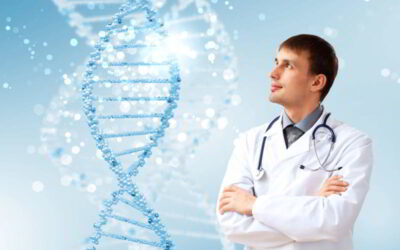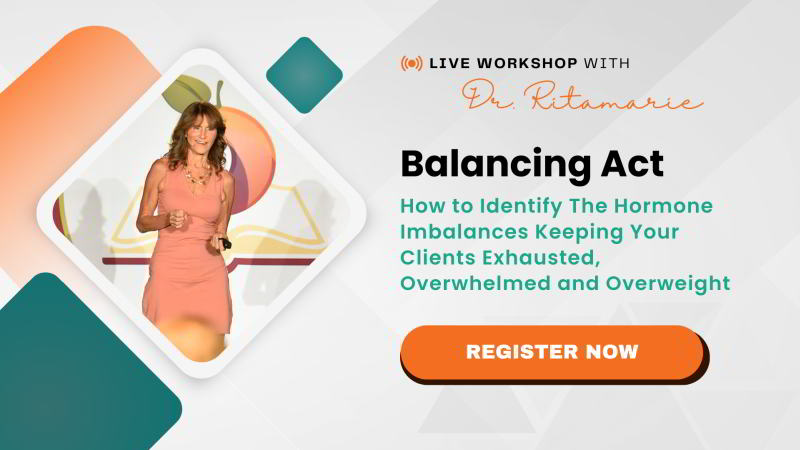Hormone imbalance is at an all-time high.
The topic of today’s article has to do with the crucial role of detoxification of the liver in hormone balance.

Diminished Sex Drive. How many people do you know that can say, ‘Well, I don’t have any sex drive, and a severely diminished libido. I have no interest in sex anymore.’ Well, maybe you don’t talk about that in your general conversations, but people talk about that when they come to me looking for help, and I hear it all the time. ‘No interest in sex…I just have no interest. I’ve lost interest. I’ve lost that part of my life.’
Fatigue. A chronic condition like fatigue is related in general to an imbalance of the hormones, especially thyroid and adrenal, although excess insulin and insulin resistance are also responsible.
Belly Fat and Brain Fog. Also, most people don’t think about food cravings, sugar cravings as a hormone imbalance. In fact, it’s directly related to an imbalance of a hormone called insulin. You don’t think about belly fat and brain fog as being related to hormone imbalance unless you’ve been to some of my classes and I’ve pointed that out to you. But, indeed, belly fat and brain fog can be related to imbalance of hormones like insulin, thyroid hormone and the adrenal hormone.
Leptin Imbalance. Hormone imbalance is around us all the time. And it doesn’t end with the thyroid and adrenals. There is also something called leptin imbalance, which is also at an all time high. You may not even have heard of it. Leptin is a hormone secreted by your fat cells that controls your appetite. So imagine what happens when leptin is out of balance: you’re hungry all the time. When you eat yet are still hungry after a full meal, it'slikely that your appetite doesn’t turn off due to a condition called leptin resistance.
Hormonal Imbalance and Detoxification
So what I want to do now is tie in the critical role of detoxification, because you may not have even thought about detoxification as related to your hormones. Most people are aware of detoxification (there are numerous detox protocols out there) and its benefits. However, whether you are new to detox or have done them before, most tend to focus on detoxification of the colon. Detoxification products are popping up all over the place. Type the word ‘detoxification’ into Google, and you’ll find ads for many, many different detoxification products – liver cleanse products, bowel cleanse products – all intended to detoxify.
So, what exactly is detoxification?
Detoxification is a natural process that your body does every day. Every single cell in your body has some built-in detoxification methods. Your cells have the ability to take in the nutrients and the chemical constituents from your bloodstream that they need for their particular function, and then release them back into circulation as waste products.
From the Air. Exercise is really good for you, but it leads to the buildup of metabolic waste products, at a cellular level. You breathe in the air; there are constituents in the air that you don’t need. You breathe it back out when you exhale. These are all very natural and important biological functions.
Problems arise when some of that stuff you breathe in from the air, like a lot of the chemicals and the pollutants, don’t necessarily go back out when you breathe out. Those get passed into your bloodstream, and ultimately put a strain on the rest of your detoxification methods. So they’re circulating in the bloodstream, and end up at the liver – which is the primary organ of detoxification in your body, but it’s not the only one.
From Food: There are cells lining the digestive tract that help you detoxify, and in fact, every cell in the body has the ability to detoxify. It’s just that the liver is considered, and is – the major detoxification organ.
Second in importance for detoxification would be your colon – your intestinal tract. For you to be healthy, your colon needs to be success at filtering out waste, because so many of the foods you eat contain waste products that need to be eliminated. Some of the waste gets eliminated in your poop. Some of the toxins are reabsorbed through the lining of your colon and pass to your liver via the enterohepatic circulation, a fancy name for the blood supply that exits the colon and goes straight to your liver, where phase 1 and phase 2 detoxification pathways take over. The toxins are rendered water soluble, and passed to your kidneys for removal. Others remain fat soluble and are excreted into the bile for elimination through your colon. Any wastes your liver is “too busy” to handle right away are stored in fat cells.
From other Sources: In addition to your liver, kidneys and colon there are other detoxification organs. Your skin is an organ of detoxification. It allows toxins to flow through out in your sweat. You get rid of a lot of toxins in your sweat, so it’s an additional way to eliminate. In summary, the main organs of elimination are: the liver, the colon, the kidneys, the skin, your lungs.
Your body has incredible detoxification mechanisms that are at work day after day to keep your toxic load as low as possible.
 The Liver, Master Detox Organ.
The Liver, Master Detox Organ.
The liver is the major organ of detoxification, and it’s most connected to your hormone balance. So you need to understand how your liver works, and you need to engage in a targeted and effective liver detox from time to time. I like to do it quarterly. When there are toxins in your blood, your liver has a very sophisticated method of filtering those toxins out.
Phase 1: The blood comes into the liver, and the first thing it does is go through something called phase 1 liver detoxification. Basically, your body takes those toxins that are entering and it makes them more accessible to phase 2.
The main purpose of phase 1 is not to detoxify these hormones so that they can be eliminated. It’s to prepare them for phase 2, where some more sophisticated things happen to get rid of them.
The problem is, when you get through phase 1, sometimes the toxins are more toxic leaving this stage than they were coming in because they’ve been altered in such a way to prepare them for the next stage.
If all is going right in nature, the toxins come in from the bloodstream and they go through liver detoxification phase 1 and then they are converted. They are usually it’s combined with some water, hydrolyzed, to make them more water soluble, though not completely water soluble (that’s the job of phase 2).
Phase 2: In phase 2, there is a sophisticated set of reactions – in fact, there are six different processes that happen in phase 2 liver detoxification. I’ll briefly touch on what they are. You don’t need to know exactly what they are unless you’re going through a deep tissue detox.
In phase 2 liver detoxification, some of the reactions that happen are glucuronidation, methylation, sulfation…and three others, but these three are the ones that most commonly get backed up and the ones that are more related to your hormones.
- Sulfation. When you are going the sulfation phase…you’re adding sulfur groups which detoxify some fo the toxins to which you are exposed. You can help the body make the sulfur and the sulfation pathway more effective by eating more sulfur-containing foods, like Brassica vegetables, broccoli, kale, cauliflower, cabbage, and Brussels sprouts. In order for your body to properly sulfate, meaning to go through sulfation and detoxify, you need nutrients like amino acids (for example, cysteine and methionine). You need vitamins like B-12, folic acid, and vitamin B-6 as well.
- Methylation. To help with the methylation pathway, you need several methyl donors, as they’re called, which include folic acid, B-12, SAMe, methionine, and cysteine. A substantial number of people are born with the genetics that cause a sluggish methylation pathway, meaning they need help with detoxification. They can’t effectively do detoxification (about 40% of the population). They have a defect in the gene, what’s called a SNP, a single nucleotide polymorphism, in the gene that helps methylation. And when you have a deficit there, in that enzyme that’s affected by the mutation, you don’t make as much of that enzyme. Therefore, you can’t methylate properly, and you can’t take your liver through the completely through the full methylation pathway. And you need all these pathways for the detoxification of your hormones, the detoxification of your environment.
- Glucuronidation . Another phase 2 process is called glucuronidation, in which you need something called glucuronic acid, magnesium, and your B vitamins in order for that process to work properly.
- Glutathione conjugation Your body needs an antioxidant called glutathione for this part of the phase 2 pathway. You know how they say it’s important to take antioxidants to help protect your liver, to help you protect against cancer and heart disease? Well, they generally mention vitamins A, C, and E. These are your primary vitamin antioxidants. But those are minor in compared to your master antioxidants like glutathione, superoxide dismutase and catalase. Glutathione conjugation is important for protecting you from free radical damage.
Glutathione S-Transferase. A common genetic variation is in a defect in the enzyme called glutathione S-transferase, which is needed to synthesize glutathione from its essential components. It's estimated that between 30 and 40 percent of the population is deficient in the glutathione S-transferase enzyme due to a genetic mutation.
What does all of this mean?
Let me give you a few examples of how not being efficient at phase 2 liver detoxification can affect your health badly.
Heavy Metal Exposure. There are many ways you can be exposed to heavy metals. Say you have a lot of mercury in your teeth. You generate a lot of poison, a lot of toxicity that your liver then needs to get rid of. And if it doesn’t – and you don’t have strong enough phase 2 what happens is these toxins get stored away, deep into your tissues.
Estrogen. Relating this back directly to the hormones, we all have estrogen. It gets secreted your ovaries (women only) and your adrenals (men and women). Did you know that your adrenals also secrete estrogen? Granted, for women the adrenals secrete small amounts compared to your ovaries, but I’m going to give you a little bonus here. When you go into menopause, that small amount that comes from your adrenals is supposed to maintain you for the essential functions of estrogen that go on a lifelong protection against certain things – bones, for example. It keeps your bones strong. This is yet another fascinating detail about how our bodies are designed to take care of us for life, provided we take care of them.
When you produce estrogen from your ovaries or your adrenals, the estrogen then travels around and it finds estrogen-binding sites on the cell, and it binds to the cells and it does its thing. It is activated and does what estrogen is supposed to do. Having enough estrogen is very important, especially if you’re a pre-menopausal woman trying to get pregnant. You need to have enough estrogen.
Okay, so keeping estrogen balanced helps. Except for one really big clincher that puts a wrench in the mix…
Xenoestrogens. It’s important for you to have enough good estrogen because other things compete for estrogen binding sites. For example, if you drink water out of plastic containers, if you microwave your food in plastic containers, or if you have composite dental fillings you're exposed to various chemicals that are inhibitors of estrogen. They’re competitors. They look like estrogen; they’re what’s called xenoestrogens (xeno meaning poisonous). Even the word itself sounds Machiavellian.

When xenoestrogens bind to your estrogen sites, they take up the space on the sites, which means that regular, good estrogen that’s floating by sees that the binding sites are full, and doesn’t bind. And what that means is because the xenoestrogens are inert, they don’t work. They cannot do the function of estrogen, and so you may have problems. You may develop problems with your menstrual cycles, early menopause, or if entering menopause, you may have problems with hot flashes. You may also have problems with bone development because of these false “poisonous” estrogens.
In addition to the fact that xenoestrogens from the environment bind to those sites, estrogenic wastes, which are supposed to be detoxified and eliminated, often recirculate as a result of overburdened detox mechanisms, and also bind to the estrogen receptor sites. In particular, phase 2 liver detoxification is designed to help you get rid of the extra estrogens. By now, you are probably beginning to see the importance of liver detoxification in correcting hormonal imbalances.
When these used-up estrogens get cycled through the liver pathways and they don’t get broken down because you don’t have adequate phase 2, they recycle. And they bind to the estrogen receptors even though they’re not biologically active. Not only do they prevent the good estrogens from entering, xenoestrogens also have toxic byproducts in and of themselves.
It's really important to have your liver be good and strong. And you know what happens if your liver can’t detoxify?
Stored Body Fat. Your precious liver tries desperately to save you from those toxins, and when it can't, it stores them away so they don't hurt you. Unfortunately, the safest place to tuck the toxins away is in your fat. This can be belly fat. as well as organs and glands that contain fat. Your brain and myelin sheaths around your nerves are a favorite target.
So if you find that even though you're not overeating and you're exercising, you're gaining weight, Take a look at your liver; take a look at your detoxification pathways .
If your liver is too backed-up, you’re going to be storing a lot of fat, and you’re going to be gaining weight even though it doesn’t appear you should based on your core intake and expenditure.
So what’s the solution?
How can you help our liver do its job?
Well, first of all you can help your body by eliminating the things that accelerate phase 1 at the expense of phase 2.
Then you look at how to slow down phase 1.
So, what are the things that accelerate phase 1?
Some of the things that accelerate phase 1 are medications, like aspirin, common over-the-counter medications, and caffeine (caffeine is known to help you increase phase 1), and certain nutrients help increase phase 1.
What you’ve got to do is focus on the nutrients that increase phase 2 and slow down phase 1 – or, at minimum, the nutrients that increase phase 2 and don’t do anything to phase 1.
Do These!

Take glutathione precursors – there are a number of products on the market like NAC, N-acetyl cysteine, and a product called Protandim that increase the production of glutathione. There are also creams that you can use topically that contain glutathione. Or, you can increase your glutathione with a glutathione patch.
Amino Acids. Add some amino acids to your diet, and make sure you’re getting enough protein. If you’re not, add some protein powder (which provides easy to digest, easy to access, amino acids for your body). Raw sprouted brown rice protein is superior to commercial rice protein powder. Other choices are hemp, pea and a combination of several different ones. Health Force Nutritionals just released a green powder called Green Sage Protein™ Magic Mint that contains 16 grams of protein per serving. Plus it tastes great and contains lots of nutrients that support detoxification.
Eliminate these: If you want your liver to work properly, you’ve got to get off the caffeine and the alcohol. These substances accelerate phase 1 and can slow down phase 2 excessively. Just wean yourself off of them until you no longer take them. Or quit them cold turkey like I did two decades ago. Trust me, it’s not as bad as it sounds. Your liver will thank you for it.
Do a liver detox designed to slow down phase 1 and speed up phase 2, like my seven-day Green Cleanse, which includes green juices, green smoothies, green soups, or just greens that you eat. And we also give you lists of the foods that improve detox and the foods that slow detox down and ask you to start including those in your daily diet.
There’s more to it than just going and getting some detox powder or getting some milk thistle (even though milk thistle’s great and does protect your liver). It’s an antioxidant for the liver, but it’s not really going to do a whole lot for phase 2. You need to be doing a few more things to help you have more effective phase 2, so that you can deconjugate your hormones and properly eliminate the used-up ones.
Prior to liver, do a colon detox. (Optional). During a colon cleanse, you will take things like psyllium and various sundry things that make your colon eliminate better (like senna). That’s excellent, and I actually think that’s a great thing to do before you even do a liver detox, to eliminate toxins in the colon and effectively increase the movement through your colon. But generally… colon cleansing alone is not going to be enough, in many cases, especially if you’re already experiencing signs of hormone imbalance.
Starting with your liver (or colon, then liver), getting a detoxification process going will definitely help your hormones become properly balanced, and you will begin to feel so much better. For some people, it’s not as quick and easy as a simple straightforward colon cleanse, and they have to do some more. Usually these are the people that have methylation issues, which is a good percentage of the population.
Everyday Detox. I love to talk about what I call everyday detox. It starts by reducing your toxic load, by looking around your home and getting rid of the products that contain toxic byproducts, cleaning up your air – using air filters – cleaning up your environment at work, and protecting yourself as best you can from the environmental toxins. And the biggest source of toxins happens to be your food – so cleaning up your food supply is number one in your detoxification arsenal.
Another Great Resource. I recently did a smash hit webinar series called SHINE – the Secrets to Happy Hormones, Invigorating Nutrition, and Energy. This FREE three-part series drew in thousands of people. You can still get access to all three information-packed calls. I talk in depth about hormonal imbalance and the role of the liver, as well as thyroid and adrenal imbalance and many other factors involved in taking your health back.
You can access to that information here: SHINE 3-Part Series
Hopefully by now you understand enough about the important role of your liver to realize it's amazing and have some tools to keep it functioning optimally. As always, I love sharing as much information as possible with you, because my goal is to bring true health to as many people as I possibly can.
To your health and vitality,
Dr. Ritamarie Loscalzo, MS, DC, CCN, DACBN









Wow this is very nice blog. The way of explanation is also very good thanks for this blog and i visit again and again more information
Thanks ,
Wanda G
Great Article… I was searching for how the liver stores toxins in your fat when the liver is too busy and learned a whole lot more (even though I’m a guy).
I wonder if the obesity epidemic here in the USA is due to having so many untested toxins in our food, cosmetics, air, etc… Combined with the fact that we don’t give our poor liver a break.
One think I recently read that could help is the intermittent fasting (stop eating between 8pm and 12 noon. This gives the liver time to eliminate all it’s glucose stores and have time to start eliminating toxins. You can drink water and even tea and coffee (unsweetened) so it’s not that bad – and in fact, I started today and must say that It wasn’t very hard at all…
Also, I’d like to suggest using a rebounder to activate your lymphatic system, which is also great as a natural detoxifier.
Thanks again for a great article!
There is a lot of good information here but just want to point out that xeno means foreign/strange and not poisonous.
I love what I read here. I think in teaching we need to give visuals and this does! Thank you for such an easy to read blog and I am sharing it with my clients.
Great tips to help your liver and also gives a good understanding of how detox can play a big role in hormonal imbalance. Well explained.
Thanks for the great and very informative article! Glutathione is indeed a key player in liver detoxification. I have some more info on glutathione and how to raise it. http://TheResearchExplained.com
Thank you for sharing the resource!